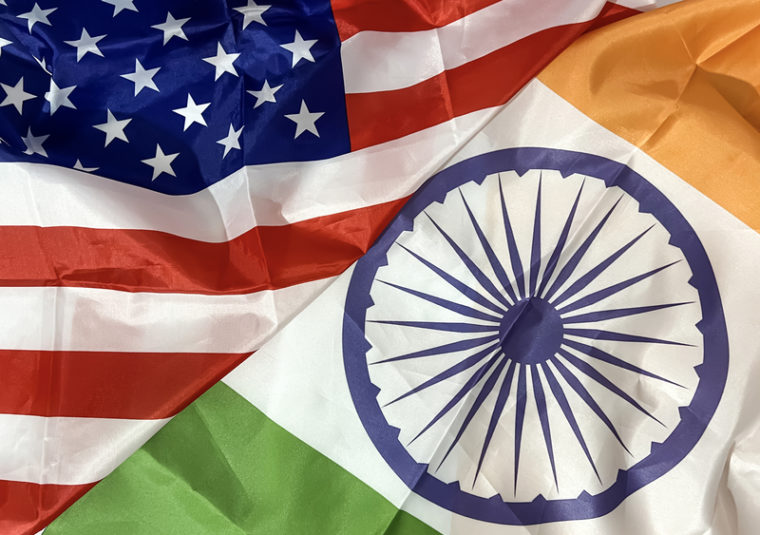
I lived in New Delhi from January to May 1972 during my final semester at Colgate University as part of an independent study project. After getting my Masters in Journalism from Northwestern’s Medill School of Journalism, I returned to New Delhi to freelance from September 1973 to May 1976. Even when the United States’ relationship with India was going well there was always a strong, underlying distrust of the U.S. government, its motives and the CIA in particular.
Over the years, sucessive American goverments have worked to cultivate a solid, trusting relationship with India, American’s biggest trading partner.
Donald Trump has nuked it within three months. And the reason had nothing to about policy unfettered by U.S. domestic politics.
Trump wanted something, he didn’t get it, so he punished India. Now India is seeking to strengthen its relationships elsewhere. According to reports, Trump was angry when India Prime Minister Narendra Modi refused to nominate Trump for a Nobel Peace Prize. Trump felt he deserved it for his supposedly ending a military crisis between India and Pakistan. Modi insisted the U.S. had zero role in ending it. Trump then suddenly shifted his attention to Pakistan — which nominated him for a Nobel Peace Prize. And the U.S. imposed hefty tarrifs on India.
For three decades, successive American presidents have invested enormous diplomatic capital to cultivate a friendship with India.
Bill Clinton, who laid the foundations of the modern U.S.-India partnership, called the two democracies “natural allies.” George W. Bush described them as “brothers in the cause of human liberty.” Barack Obama and Joe Biden both cast the relationship as one of the defining global compacts of this century.
To Washington, India was a vast emerging market, a potential counterweight to China, a key partner in maintaining Indo-Pacific security and a rising power whose democratic identity would bolster a rules-based international order. For its part, India — mistrustful of the West after nearly a century of British colonial rule — shed its Cold War suspicion of Washington, which had armed and financed its archnemesis Pakistan for decades, and moved steadily closer to the United States.
It took Donald Trump one summer to obliterate these gains.
In May, he claimed credit for ending a brief military conflict between India and Pakistan. This incensed India, which regards its dispute with Pakistan as strictly bilateral, and humiliated Prime Minister Narendra Modi, who had touted his closeness to “my friend Donald Trump.” Mr. Trump proceeded to have lunch at the White House with Gen. Syed Asim Munir, Pakistan’s army chief and former head of the country’s spy agency, which the United States has accused of supporting international terrorist groups. He also called India’s economy “dead” and imposed punishing 50 percent tariffs on Indian imports to the United States.
This abrupt falling-out has profound implications. Mr. Trump’s insults have, to some degree, united India’s permanently clashing political parties — a striking development in a country where Mr. Modi’s divisive rule has left little political common ground. For the first time in decades, the United States is the common foe of almost every political faction in India.
AND:
No nation is entirely safe from Mr. Trump’s unstable temperament. But India had been lulled into the delusion that it was uniquely protected by the supposed special bond between Mr. Trump and Mr. Modi, two self-aggrandizing men who have subordinated their nations’ foreign relations to their personalities.
Mr. Modi has built a formidable cult of personality at home, burnished in part by claims that Mr. Trump and other world leaders adulated him. When Mr. Trump was elected in November, pro-Modi Indian media personalities exploded with a mawkish mixture of triumphalism and schadenfreude. They declared that with Mr. Modi’s friend back in the White House, India’s adversaries were on notice and rhapsodized about the chemistry between the two men. In 2020, Mr. Modi even trampled on the nonpartisan nature of India’s relationship with the United States by endorsing Mr. Trump for a second term.
Mr. Biden overlooked this slight during his presidency. His administration continued to treat New Delhi as a vital partner while occasionally raising concerns about the deterioration of democracy under Mr. Modi. The Indian leader’s supporters believed that Mr. Trump, rather than lecture New Delhi, would squeeze the country’s enemies and accelerate India’s rise.
It hasn’t worked out that way. Mr. Trump has jeopardized the bilateral relationship and dismantled, almost overnight, Mr. Modi’s meticulously crafted image as a globally venerated statesman — something his rivals in the Indian political opposition have been unable to do.
The United States is India’s largest trading partner, and the tariffs are expected to devastate businesses across a range of sectors, causing factory closings, job losses and slower growth.
Mr. Trump at first applied a 25 percent tariff on Aug. 1 as part of his global assault on U.S. trading partners. Days later, he announced an additional 25 percent levy to punish India for buying Russian oil. The latter outraged and puzzled Indians — it was Washington, after all, that had initially encouraged India to purchase Russian oil to help stabilize global prices after Russia’s invasion of Ukraine. China, which imports more Russian oil, and Europe, whose overall trade with Russia is larger than India’s, have not been penalized for that.
The tariffs are now being challenged in U.S. courts.
And another relationship with a one-time ally bites the dust.
Joe Gandelman is a former fulltime journalist who freelanced in India, Spain, Bangladesh and Cypress writing for publications such as the Christian Science Monitor and Newsweek. He also did radio reports from Madrid for NPR’s All Things Considered. He has worked on two U.S. newspapers and quit the news biz in 1990 to go into entertainment. He also has written for The Week and several online publications, did a column for Cagle Cartoons Syndicate and has appeared on CNN.
















